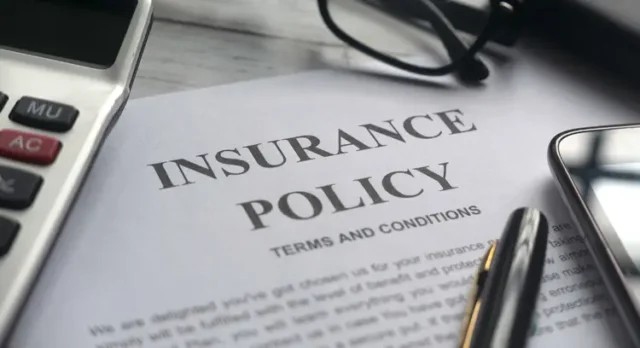Business insurance can be explained as a shield that protects firms from extreme financial losses. Sadly enough, the situation is grim in the case of many firms; they indulge in such practices without insurance coverage and only trace risks on paper. Every business venture into the situation with three specific risks: loss of unknown assets, legal disputes, and business interruptions. In this post, we will analyze the risks of operating a business without business insurance, how some real businesses failed without this additional buffer, and the best practices that would help you stop solely referring your business management to an accountant.
What Is Business Insurance and Why Do You Need It?
Business insurance is, in fact, a very generic word that can be applied when talking about a number of insurance options that are made to help protect a particular business owner from suffering a financial loss. Such risks include loss or damage to property, legal risks, employee-related risks, and business interruptions.
Key Reasons to Have Business Insurance:
Financial Protection: Provides backup to prevent losses from considerable loss of money.
Legal Compliance: The legality of business insurance for firms in certain regions requires usage of business insurance. For example, a firm must have an employee’s compensation insurance in regions where a firm operates.
Reputation Management: If a firm operates in a highly competitive environment smoothly and effectively deals with attitude claims and explores the potential causes among clients and the stakeholders It is highly likely that the clients would trust the firm even more.
If there are no sufficient types of insurance, businesses will be subject to unmaintainable kinds of financial risks which would lead to shut down or even bankruptcy.
Real-Life Example: The Coffee Shop That Lacks Liability Insurance
Let us envision an ideal working scenario of a coffee house in a big city. One day, a patron trips over a wet spot in the coffee shop and, after suffering a serious injury, decides to bring the shop to task for the damages incurred. The absence of general liability insurance places the business owner on a straight line to the medical and legal costs to an extent running into thousands of dollars.
Cost Breakdown of Not Having Liability Insurance:
| Expense | Approximate Cost |
|---|---|
| Medical bills | $20,000 – $50,000 |
| Legal fees | $10,000 – $30,000 |
| Reputation damage | Loss of customers and revenue |
This case exemplifies how a single mishap can cause all the strides made over the years to go to waste.
What Is Considered to Be the Number of Damages Suffered Due to Interruption of Business?
Business interruptions can be caused due to natural disasters, cyber incidents or utility outage. In the event that there is no business interruption insurance taken out, revenue loss and cost of operations must be borne by the enterprises.
Case Study: The Ms. Moreau’s boutique flooded premises
A flood prone area boutique was hit by heavy water damage and thus, had to shut down operations for a period of three months. The business owner was not covered with business interruption insurance and thus, had to still incur expenses such as rent, payroll, and costs of refurbishment but was not making any sales.
Financial Impact of Business Interruption:
| Expense | Approximate Cost |
|---|---|
| Rent for 3 months | $15,000 |
| Salaries | $20,000 |
| Restoration costs | $30,000 |
| Total loss | $65,000 |
No insurance meant that the owner of the boutique had to rely alone on his individual savings which put both the business as well as personal funds at risk.
Which of the Following Is Not an Example of ‘Business’ or ‘Life’ Insurance?
Although business insurance and life insurance are designed for different types of risks, there are times when some policies may appear to cover similar areas. These are, in broad terms, some categories of policies that are business oriented:
General Liability Insurance: Covers bodily injuries as well as damages to properties.
Professional Liability Insurance: Covers claims of negligence or malpractice.
Property Insurance: Injuries that may incur due to destruction of business premises and its constituent items.
Workers’ compensation: Maximal protection for employees’ on-the-job injuries.
Business insurance policies do not cover activities that are not business, like traveling, which is personal and does not relate to business or life insurance.
What Is the Importance of Insurance?
Insurance is not only about protecting yourself financially; it allows businesses and entities to develop and expand in a sustainable manner.
Benefits of Business Insurance:
Risk Mitigation: Protects organizations from events beyond the control of the organization.
Investor Confidence: Businesses are more dependable to investors if they are insured.
Regulatory Compliance: This is the ability to adhere to legal provisions and other laws.
In the absence of insurance, businesses are exposed to:
Sudden Legal Liabilities: This includes legal actions against them by clients, employees, third parties, etc.
Business Downtime: Operational activities may get suspended due to natural occurrences like floods or other external hacking.
Loss of Reputation: If such circumstances arise and the concerned parties are not paid for the damages, the reputation of the business is questionable.
Real-Life Example: Cybersecurity Breach.
Generally, a cyberattack was directed towards a mid-sized organization which deals with sensitive clientele information. There was stealing of customer information which resulted into bottom line losses, lawsuits and regulatory penances. Again, without having cyber liability insurance, the company suffered a loss of more than a million dollars.
How Cyber Liability Insurance Could Have Helped:
Legal Defense Coverage: Costs of conducting the legal defense in lawsuits.
Notification Costs: Utilization of funds to notify the clients who were affected.
Regulatory Fines: The regulatory penalties borne by the authorities.
The Four Most Important Types of Insurance for Businesses
Types vary in relation to the demands of a particular business, but certain fundamentals have to apply.
1. General Liability Insurance: This falls under broad policies and covers external claims against bodily injury or loss of or damage to effector the insured party.
2. Property Insurance: Apart from buildings and their contents, inventory items and other tools are insured for loss or damage.
3. Workers’ Compensation Insurance: Economic security and rehabilitation of areas that have been affected in most parts of the world is compulsory. This coverage also leads to medical bills and salaries for employees infected within the working environment.
4. Business Interruption Insurance: This type of insurance compensates loss incurred or income lost because of the paralyzed activity.
Overlooking the above policies will lead businesses to considerable losses and it will be difficult for the business to carries on its operations.
Insurance is very cheap compared to these possible losses.








